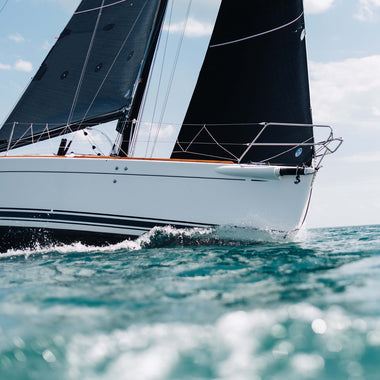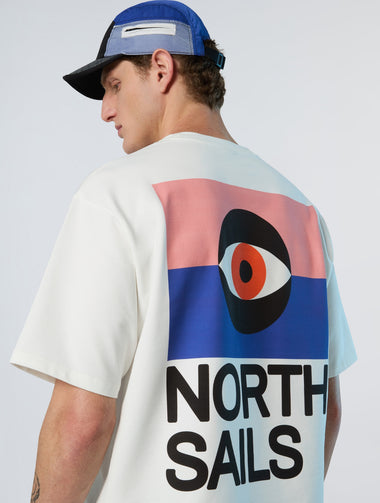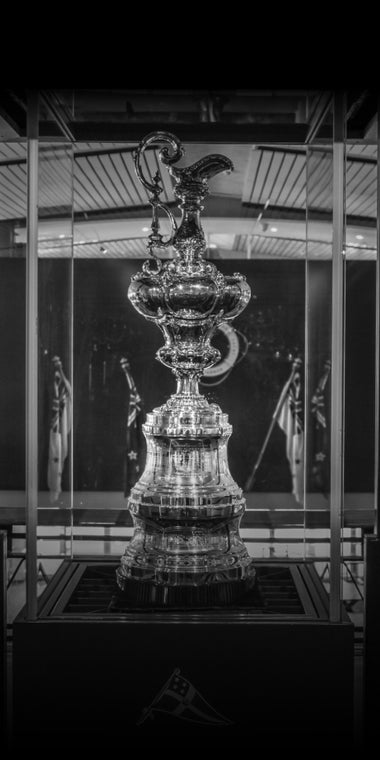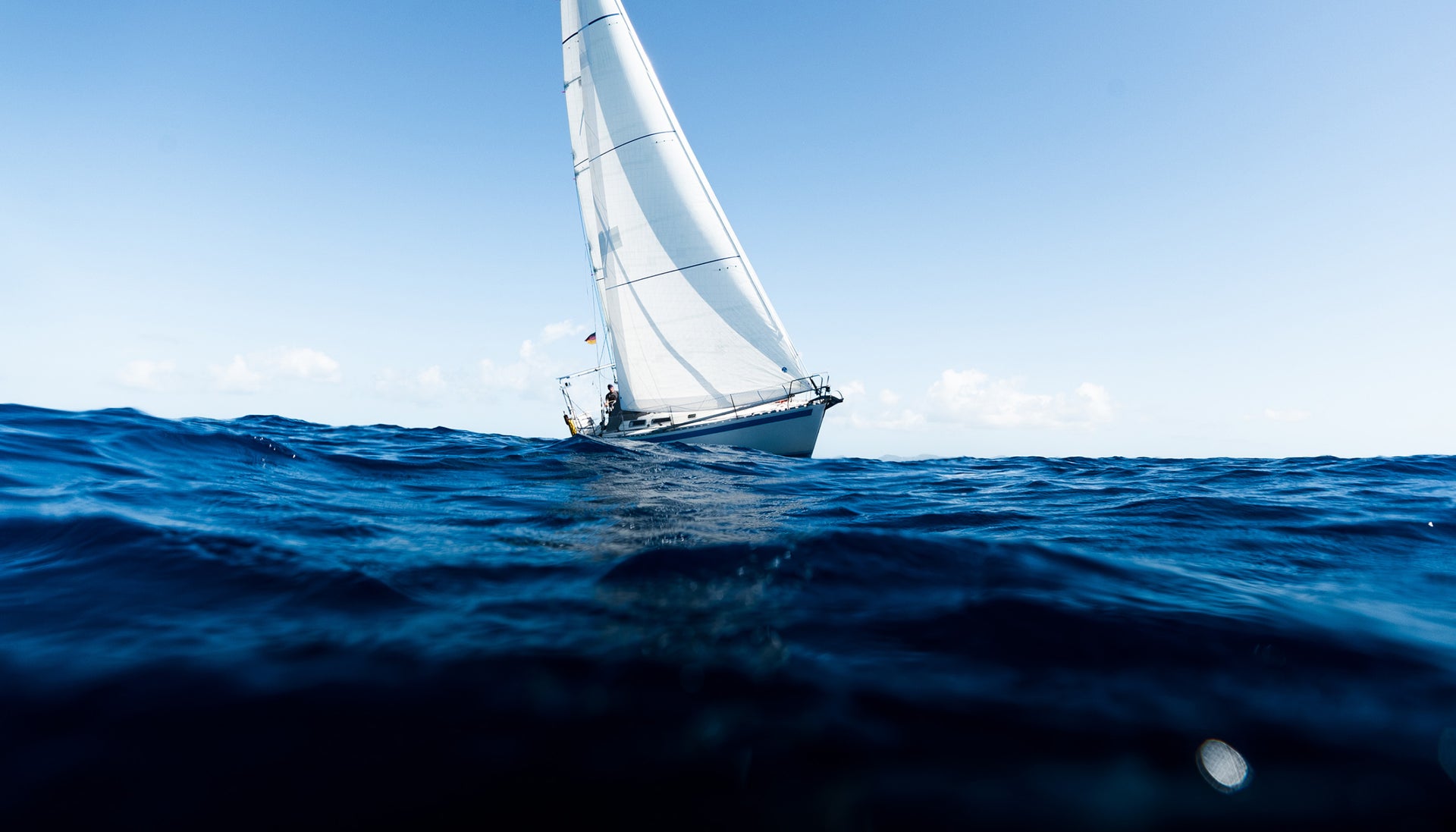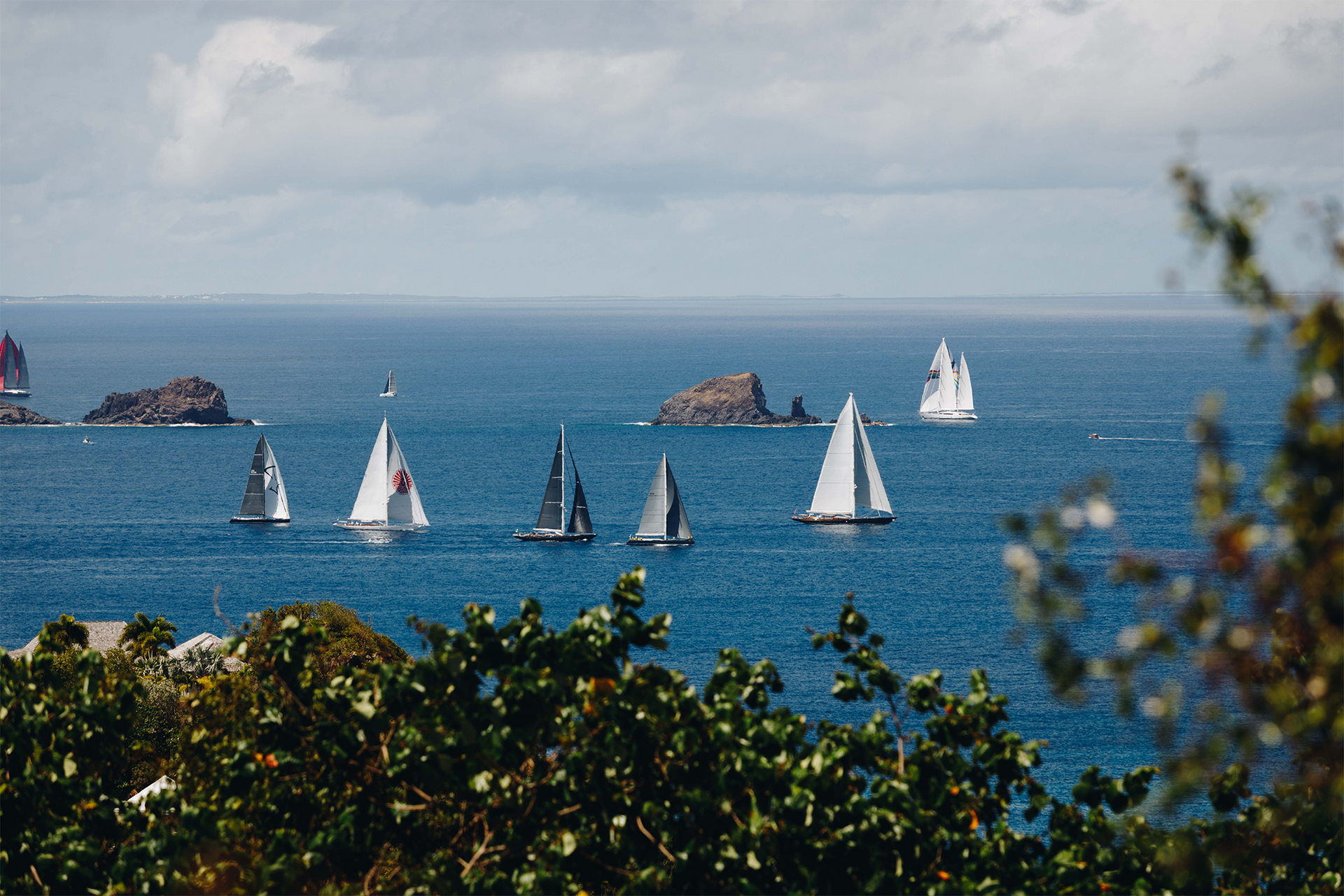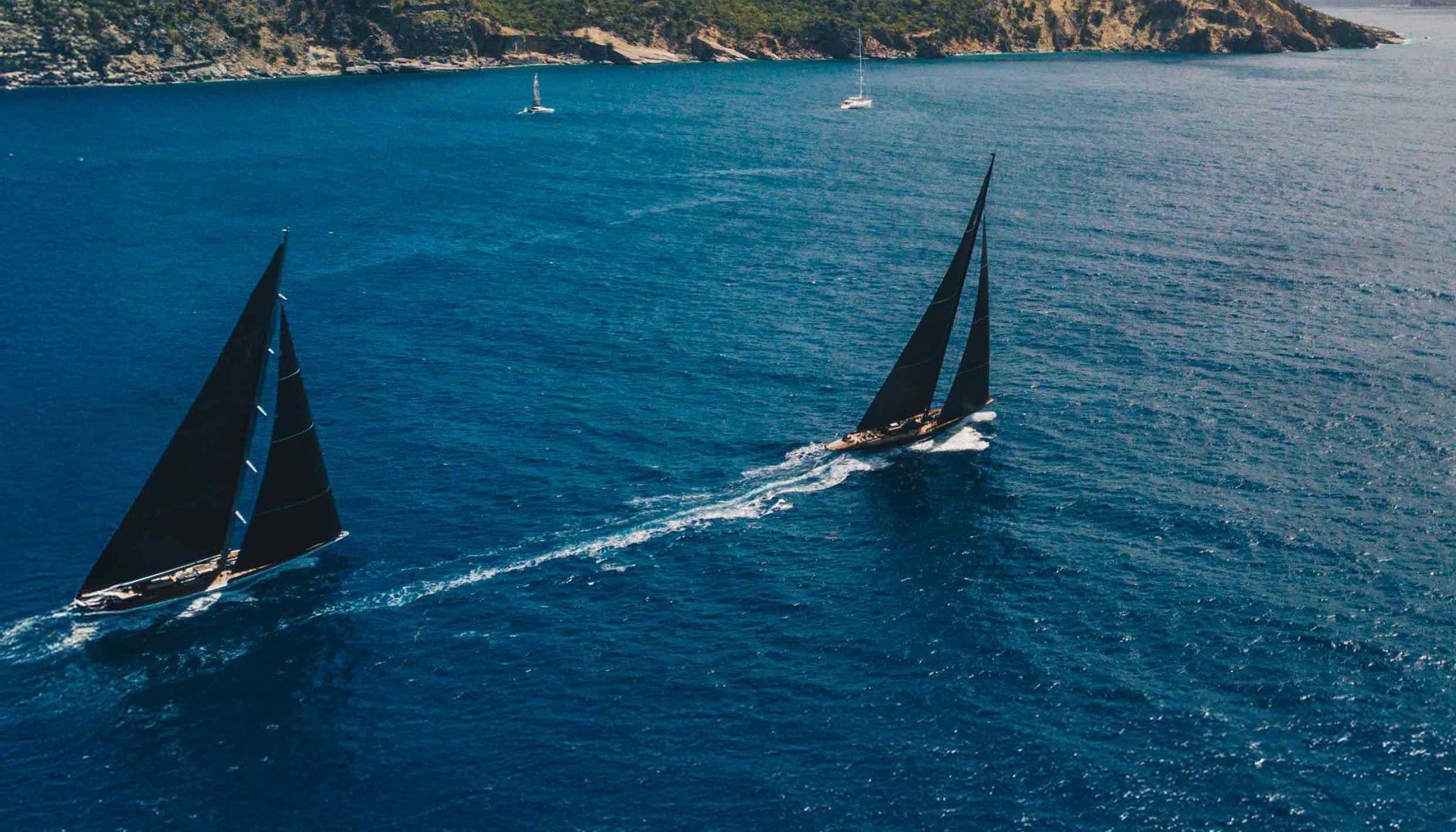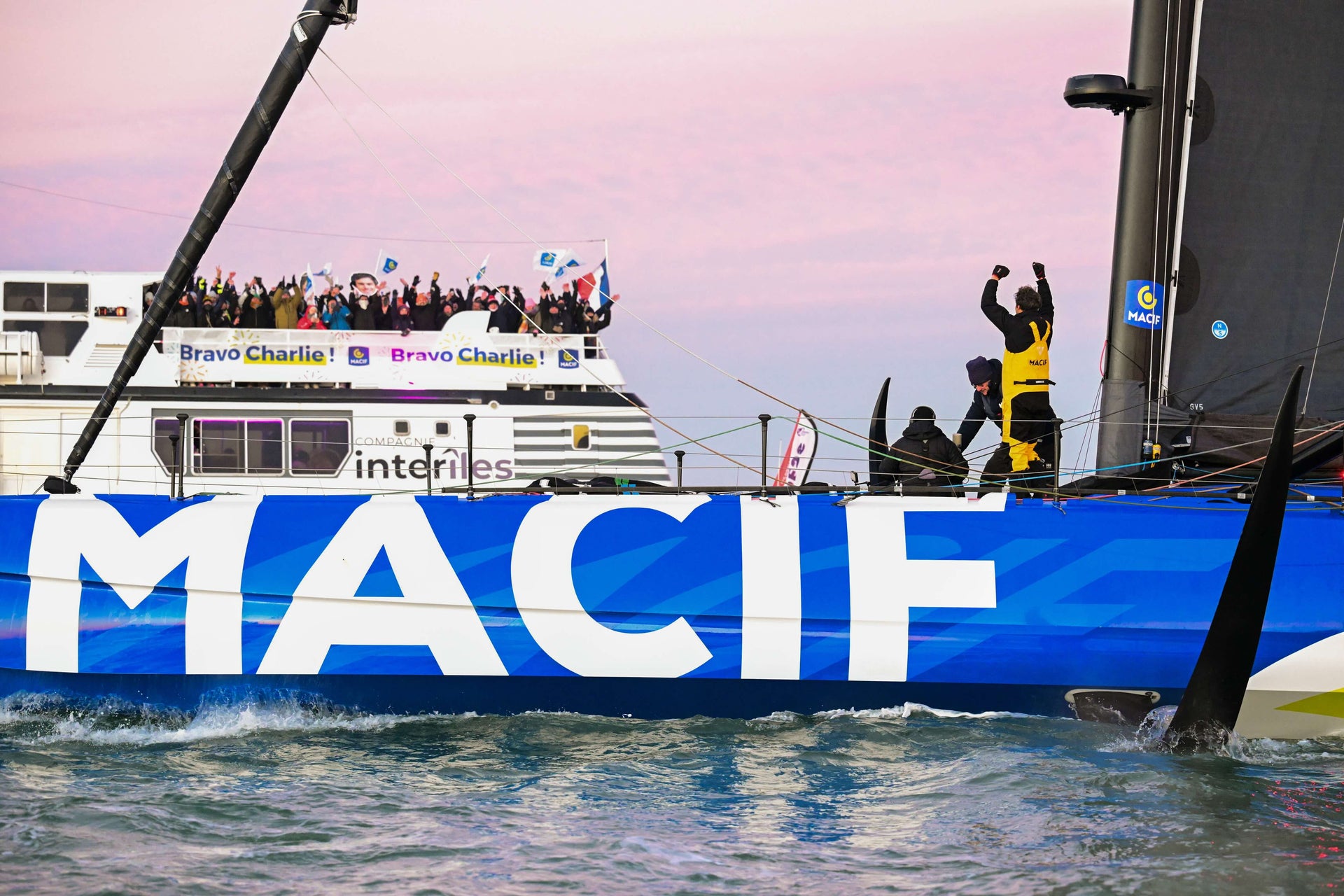#NSVICTORYLIST: 2021 ROLEX FASTNET RACE
#NSVICTORYLIST: ROLEX FASTNET RACE
The overall Fastnet line honors leaderboard has a common theme: North Sails
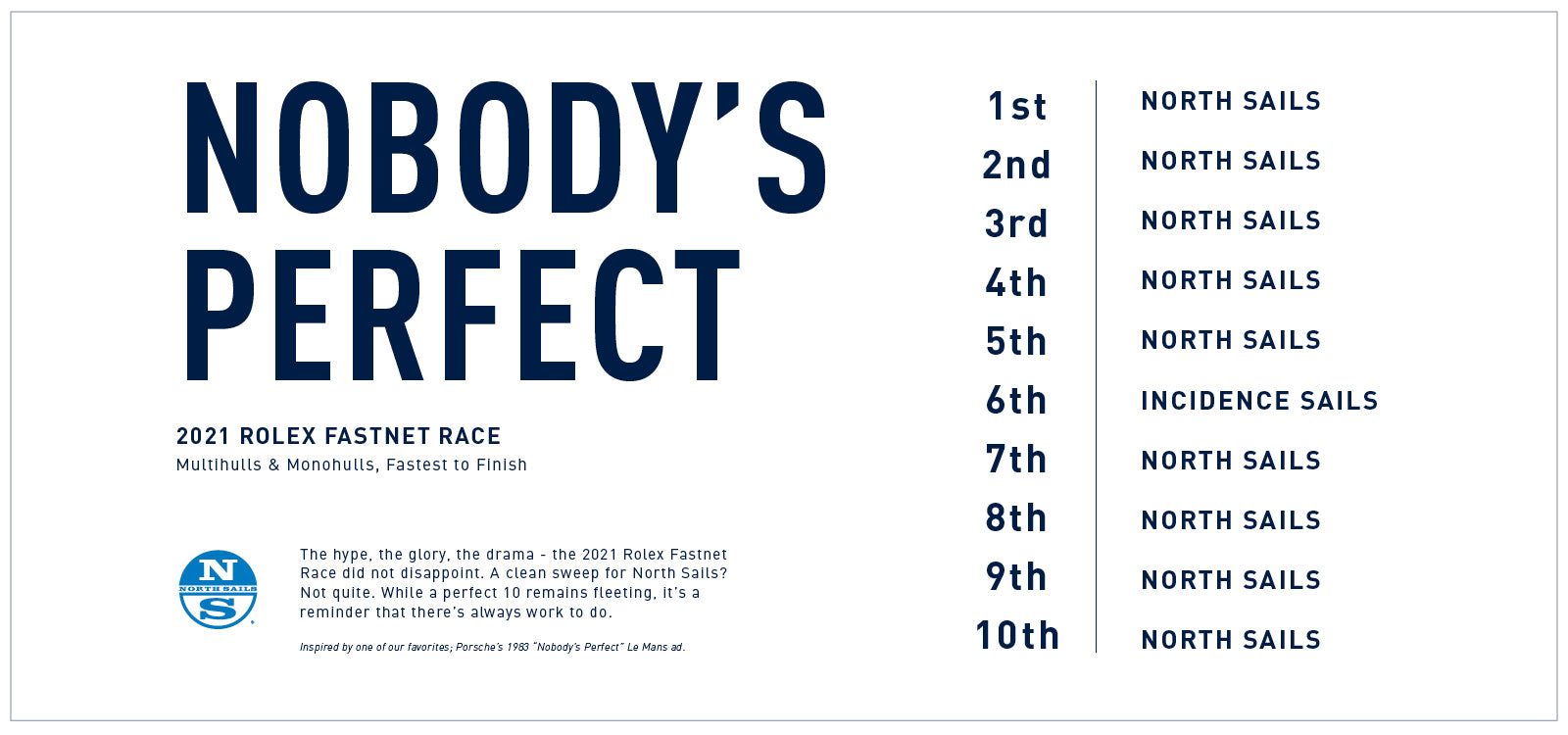
It’s been a busy couple of days in the English Channel, with the Rolex Fastnet Race bringing the sailing world to life for the 49th time. For North Sails President Ken Read, this race is “one of the Big Five, a race that’s leading the way.” And this year, North Sails equipped nine out of 10 fastest finishers. A full command of the overall line honors leaderboard is a common theme for the world’s leading sailmaker. In the last six months alone, North design expertise and sail technology have outfitted the game’s most successful projects; the Vendee Globe, the 36th America’s Cup, the Ocean Race Europe, the Transpac, the Olympics, and most recently, the legendary Rolex Fastnet Race.
Franck Cammas and Charles Caudrelier’s crew established a new record of 1 day 9 hours 15 minutes and 54 seconds. But as Cammas was quick to point out when greeted on the dock, “we have a record, but it’s the first time
He later confessed that “the start was very intense, with many dangers to deal with all at the same time amidst the yachts, the competitors, the cargo ships and the ferries, not to mention 25+ knots which spiced up the start of the race. We were happy to come out of the Solent unscathed, and the fact that we were leading the way was even better.”
It’s Gitana Team’s second Rolex Fastnet Race win in a row, so obviously, their experience as a crew is paying off. Every move matters on a racing machine like the Ultime, including those made before arriving at the start line. Since 2019, many improvements have been made to the boat’s appendages and systems; they’ve also added a brand new North Sails inventory. “The emphasis has been placed on aerodynamics,” says co-skipper Franck Cammas. “We’ve worked on many aspects in detail, but no revolutionary changes.”
The team has noticed substantial performance gains with their Helix Structured Luff sails. “We had problems with heavy loads deforming the forestay,” explains co-skipper Charles Caudrelier. “With Helix, the loads are redistributed, which allows us to have a straighter, stiffer luff. In particular, the Helix J0 is a small revolution. We are still in a discovery phase, but the gains are clear.”
After exiting the Solent, the Gitana Team led the fleet south towards the Channel Islands, where they tacked further south than their main Ultime rivals, a winning move that allowed them to sail in better breeze. But with so much of the race sailed upwind, their speed machine only briefly touched 40-41 knots after passing Bishop Rock on the return journey.
The brutal first 12 hours of the race were also a solid test for the newly launched ClubSwan 125 Skorpios, and she came through splendidly. As the breeze softened, Dmitry Rybolovlev’s 125-foot superyacht extended away from her main rivals, including previous winner Rambler 88. Juan Kouyoumdjian’s latest design was the first monohull to cross the line, wrapping the course in 2 days, 8 hours, 33 minutes, and 55 seconds.
“The boat is very strong,” said skipper Fernando Echavarri . “We backed off on speed coming out of the Solent, but so was everyone else. We had an idea of what she might be able to do, but we didn’t know for sure, so we learned a lot from this race.”
“Watching Skorpios flying off waves upwind in 30 knots, with a completely unproven boat and unproven sails…” recalls Ken Read. “It just goes to show that when we put our minds to it, what we can produce is nothing short of spectacular.”
Onboard Skorpios is a nine-sail 3Di inventory that features liberal use of Helix Structured Luff technology and a couple of extra sails that you’d traditionally find on an IMOCA or Volvo 65.
“Upwind, you have the J0, J2, J4, and J5,” explained North lead sail designer Steve Calder. Downwind, the J0 or FRO (fractional code 0) and whisker pole (a spreader) , the masthead A3 sail and multiple sails inside that. The other one is the Inner Reaching Sail (or IRS) that sits on the innermost tack point and that is used inside any of these downwind sails.”
Calder further remarked: “The boat looks great, the sails look great, and they performed exceptionally in what were very trying conditions. The results speak for themselves. It’s projects like Skorpios that keep all of us at North Sails pushing towards the next big idea.”
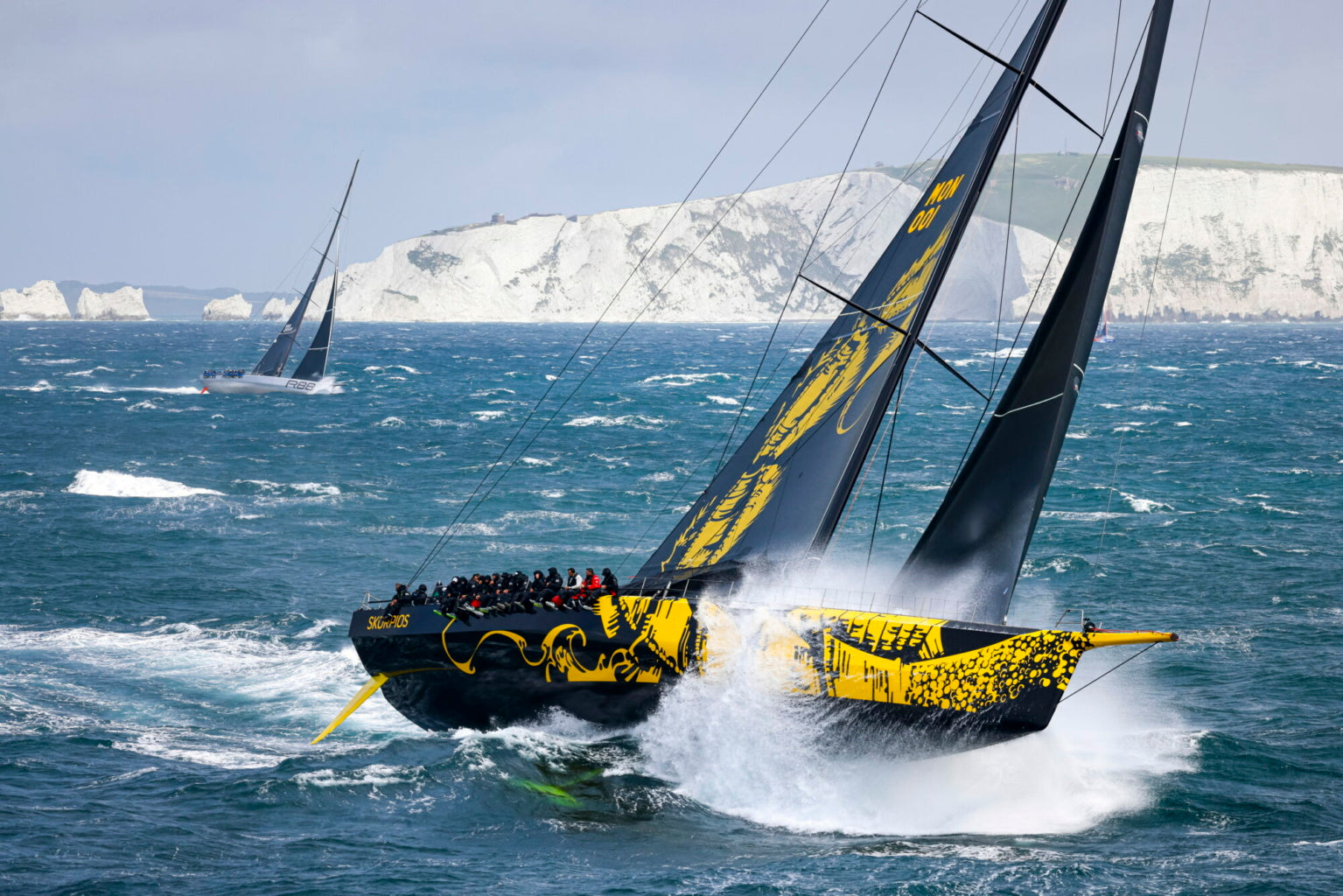
The slightly longer course – 87 additional miles – seemed to appeal to Charlie Dalin, who’s no stranger to long offshore trips. The skipper of the IMOCA Apivia claimed Vendée Globe line honors in March but ultimately lost the top prize to Maître CoQ’s Yannick Bestaven, who was awarded overall winner after a time compensation. This time, Dalin and his co-skipper Paul Meilhat took a resounding win in the 13-strong IMOCA fleet.
Equipped with new foils and some new sails, Dalin and Meilhat flew upwind past the Needles, even converging with the ClubSwan 125 at the TSS (Traffic Separation Zone) – a boat more than twice her length! Then, the boats match-raced across the Celtic Sea to the Fastnet Rock, Apivia rounding only 49 minutes astern of Skorpios and proving the power of the new foilers.
“That was good,” said Dalin. “It was a shame because if the wind had been maybe 15 degrees left and 2-3 knots more, we would have overtaken them for sure. At 60 degrees TWA, we were faster.”
Maxi Edmond de Rothschild , Skorpios, and Apivia: three iconic boats, three stellar crews, three very different ways to sail and envisage sailing. The 2021 Rolex Fastnet Race fastest finishers showcase that no matter the boat, whatever the conditions, North Sails wins more races than all other sailmakers combined.
